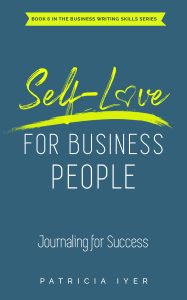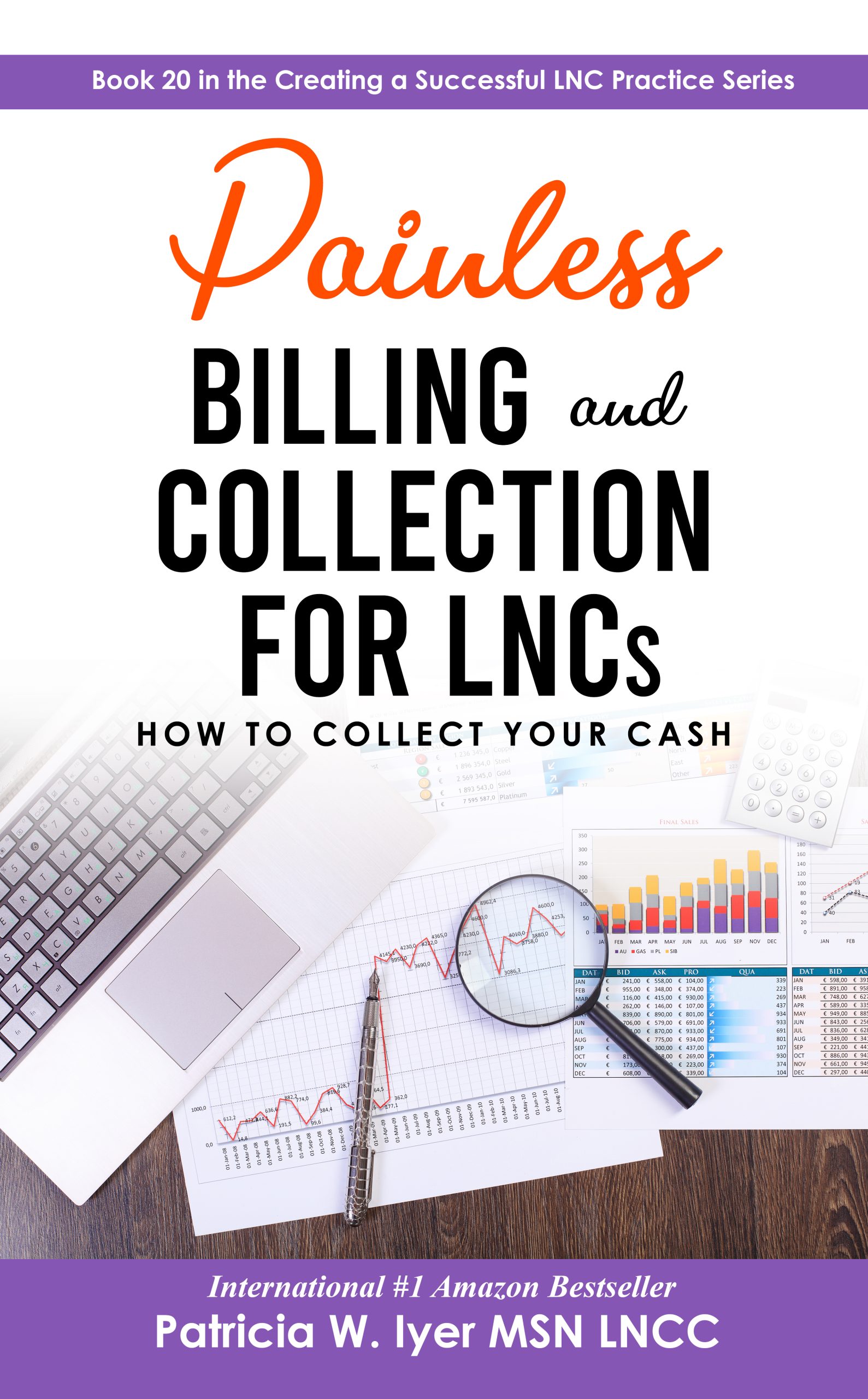What is Your LNC Money Mindset?
Your money mindset affects both your business and personal finances. It’s imperative for you to identify how you feel about money.
Asking yourself about your money beliefs is the most critical question when you are contemplating billing and collection for your invoices.
Your beliefs directly affect how you experience cash flow.
Consider how you feel about money:
- When money isn’t coming in
- When you’re locked in a financial battle with a difficult client
- When a previously loyal client suddenly disappears
- When you get several potential clients asking for outrageous discounts
- When clients say they’ll pay you if they win their cases
In summary, apply some introspection whenever you have an actual or potential disruption to your income flow.
It’s Not Just One Question
If I were to ask you, “How do you feel about money?” I would probably get answers like, “Money is good,” “It pays the bills,” or “I’ve always had enough.” You might say, “I’ve always worried about money,” “I’ve never had enough,” or “I don’t like to think about it.”
The truth about money is that how we view it is complicated by our past, especially childhood memories, and, even more deeply, our levels of self-confidence and self-esteem. Do we feel we deserve money, and if so, what determines our response?
At some point, every entrepreneur will encounter issues with money. My intention with this post is to keep you from slamming into a brick wall by presenting guidelines to help you explore your relationship with money.
As an LNC, you provide services that help people. Working for a plaintiff attorney, you’ll determine whether people are entitled to compensation for medical errors. If you work for a defense attorney, you may end up safeguarding the reputation of medical personnel wrongly accused of dereliction of duty.
The nature of our work puts us firmly in the helping professions. Money challenges anyone in this sector, whether they’re massage therapists, counselors, or others in health care.
Some LNCs feel guilty because they think they should be giving away their services. Unless they’re independently wealthy, they can’t practically do this, and neither can you. You want to help, but you need to make a living. Moreover, you deserve to make a living. You spent years acquiring the skills that will serve you in your LNC profession, and you’re entitled to benefit from your experience.
In addition, the beauty of working as an LNC is that you aren’t directly billing the plaintiff or defendant. You should not engage in financial arrangements with the attorney’s client. You don’t get your payment from poor Mr. Marcus, who had a botched surgery.
We deal with a buffer, the plaintiff attorney or the defense attorney. Let me assure you that this attorney has no trouble asking for money. They are in a business, just like you are. The plaintiff’s attorney’s job is to ensure Mr. Marcus receives compensation. They must pay you for your assistance in achieving that goal. The defense attorney’s job is to minimize or eliminate the need to pay.
Your logical mind will accept this, but none of us operate exclusively with our rational minds. Your emotional side may still be resisting pursuing what you are owed.
This may be your biggest issue as an entrepreneur. If you don’t feel confident that you deserve to make a healthy income from your work, you can fall prey to the bargain hunters, the ones who will pay you when they get paid, those who say they’ll pay if they win.
You don’t want this to happen. Preventing this involves looking at your mindset.
The Money Mindset Steps
Take simple money mindset steps to get the ball rolling again and break that cycle.
Challenge your money belief system. Everyone has a belief system about the basics of life. An example is religion. You can probably put a name to your religious system, even if that name happens to be agnosticism or atheism. Regarding religion, most people know what they believe, but the weird thing about finances is that most people take their money beliefs for granted and don’t even question them.
When you first planned or set up your LNC business, did you think about your money belief system and how it would affect your financial goals?
Did you make specific financial goals? Do you know how much you must spend on your business, how much you need to make, and how much you want to make?
If you answered “no,” it’s time to revisit what you believe about money. If you answered, “Yes, but I’m frustrated because I’m nowhere near where I thought I would be financially,” you also need to investigate your beliefs.
Let’s look at common money beliefs and mistakes that trip people daily.
See how you answer the following questions.
What do you believe about “getting rich”?
What describes your internal “deserve level”?
Which of these statements feels most true for you?
- Money is the root of all evil.
- Money is something people fight about.
- Money is something that other people have.
- Money isn’t essential; helping others is all I care about.
- Money is something I make quickly, but I never seem to have enough for my needs!
- Money is usually the last thing I think about until I need to pay a bill.
- Money is a game to me, not a goal.
- Money is a powerful tool that helps me through life.
- Money allows me to help people, including myself.
Before you plan to earn a dime, sit down, and think about your financial belief system. In addition to answering the previous questions for yourself, write down all the common mantras you find yourself using whenever you feel about money. For example, “Because I’m not as good as other LNCs, I can’t charge as much as they do,” or “I’m new. I need to give discounts.”
Money Mindset Summary
We all have deeply ingrained beliefs and mantras that we aren’t even aware of but repeat to ourselves over and over. Money beliefs are buried deep in your subconscious. They often go back a long way, probably back to your childhood. Often, these beliefs are not even yours. They’re beliefs you inherited from parents and grandparents. Therefore, these types of money beliefs are especially tough to transform.
How to Work with Your Beliefs
Journal
Our beliefs often elude us. They rattle around in our heads like motes of dust, invisible but influential in determining our attitudes, emotions, and behavior.
Writing them down brings them to the light, where you can examine them. When facing a money problem, write about it without censoring yourself. You might note, “I have so much trouble bringing in clients. I don’t understand it. I’m friendly. I demonstrate my competence. I turn in projects promptly. What am I doing wrong?”
Keep writing
Don’t dismiss any thought or memory, no matter how unrelated it seems to your question. You might remember your mother withholding your allowance because she said you didn’t make your bed correctly. (I didn’t make this up.) Maybe a memory surfaces of a time you couldn’t go on a class trip because your family couldn’t afford to pay for it.
Whatever comes up, write about how you felt about it and what that experience made you decide about life. Maybe you decided that what you did would never be enough in the bedmaking incident. Perhaps the school trip experience made you decide that you would never have the things you wanted. This is vital.
Sometimes these revelations may make you want to stop your explorations. If you can stay with them, you will loosen and eventually dissolve their ability to control your emotions and behavior.
Conclusion
Explore the value of journaling with my book, Self Love for Business Owners: How to Journal for Success. Get it at patiyer.com/books.
 In my book, Painless Billing and Collections, you’ll learn the stress-free ways for handling your payments. Click here to get it and transform your approach to billing and collection effectively.
In my book, Painless Billing and Collections, you’ll learn the stress-free ways for handling your payments. Click here to get it and transform your approach to billing and collection effectively.
Sometimes you will do better to have a coach working with you. A coach can see things you don’t, ask questions you wouldn’t have considered, and support you when the exploration process gets complicated. Yes, this costs money, but it will be highly cost-effective in the long run-and not always that long. As an LNC business coach, I help my LNCs overcome their challenges surrounding money.
Contact me if that opportunity appeals to you.

Pat Iyer is president of The Pat Iyer Group, which develops resources to assist LNCs in obtaining more clients, making more money, and achieving their business goals and dreams.
Join our Facebook group, LNC Business Growth Circle, to be part of our LNC community.
Pat’s related websites include the podcasts broadcast at podcast.legalnursebusiness.com, and writing tips supplied at patiyer.com.
Get all of Pat’s content in one place by downloading the mobile app, Expert Edu at www.legalnursebusiness.com/expertedu. Watch videos, listen to podcasts, read blogs, watch online courses and training, and more.


[…] brand to earn a 6-figure income (“A beautiful brand isn’t necessary at this income level”). By contrast, if you act and think as if you already are a 6-figure earner, you’ll approach your bu… Your confidence level will increase. You’ll present a very different brand to your prospective […]